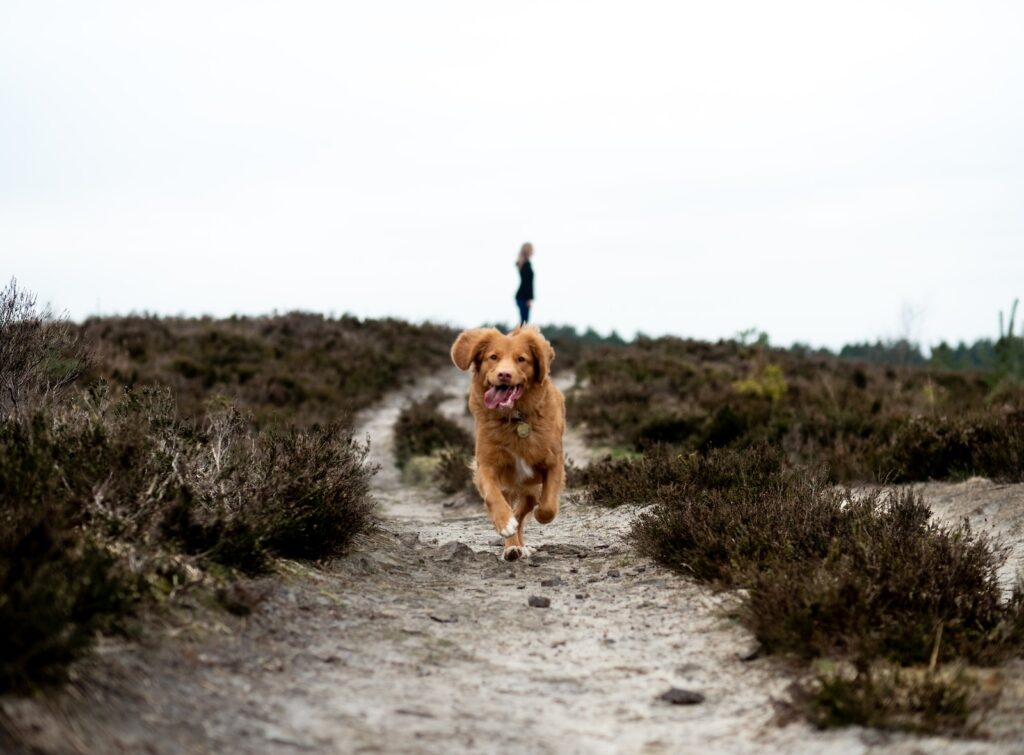Can Dogs Eat Dandelions? — Yes, They can
Dandelions are safe for dogs to eat, and they can actually offer some health benefits. However, it is important to ensure that the dandelions have not been treated with any chemicals or pesticides that could be harmful to your pet. If you are unsure about the source of the dandelions or if they have been sprayed with anything, it is best to avoid giving them to your dog.
Can Puppies Eat Dandelions?
Puppies can eat dandelions just like adult dogs. However, it is important to introduce new foods to puppies gradually and in moderation. Dandelions should be given as a small part of their overall diet, and you should monitor their response to ensure they tolerate it well without any digestive issues.
Things to consider when feeding Dandelions to puppies?
When feeding dandelions to puppies, it is important to consider their size and age. Puppies have different nutritional needs compared to adult dogs, and their digestive systems are still developing. Start by offering a small amount of dandelions and observe their reaction. If they show any signs of upset stomach or diarrhea, discontinue feeding dandelions and consult your veterinarian.
Nutritional Benefits of Dandelions for Dogs — Why Dandelions are good for Dogs? /Why Dogs can have Dandelions
Digestive Health
Dandelions are rich in fiber which can aid in promoting healthy digestion in dogs. The fiber content helps regulate bowel movements and can prevent issues such as constipation.
Antioxidants and Vitamins
Dandelions are a good source of antioxidants, such as beta-carotene and vitamin C, which can help boost the immune system of dogs. These antioxidants help combat harmful free radicals and reduce inflammation.
Urinary Health
The diuretic properties of dandelions can help promote urinary health in dogs. Dandelions can help increase urine production, thus aiding in flushing out toxins and reducing the risk of urinary tract infections.
Joint Health
Dandelions contain vitamins and minerals, such as calcium and magnesium, which can help support healthy bones and joints in dogs. These nutrients contribute to maintaining strong bones and reducing the risk of bone-related diseases.
Weight Management
Due to their high fiber content, dandelions can contribute to a feeling of fullness in dogs, which may help with weight management. Including dandelions as part of a balanced diet can support dogs in maintaining a healthy weight.
Potential Allergies: Can Dogs Be Allergic to Dandelions?
While not common, some dogs may have allergies to dandelions. It is important to observe your dog’s reaction when introducing dandelions for the first time. Look out for symptoms such as itching, redness, swelling, or gastrointestinal upset. If any of these symptoms occur, it is best to avoid feeding dandelions and consult with your veterinarian.
Symptoms of Dandelion Allergies in Dogs
- Itching and skin redness
- Hives or rashes
- Swelling, particularly of the face, lips, or throat
What to Do If Your Dog Shows Symptoms?
- If you suspect that your dog is allergic to dandelions, discontinue feeding them immediately.
- Contact your veterinarian for a proper diagnosis and guidance on managing the allergy.
- They may recommend antihistamines or other treatments to alleviate the symptoms.
Recommended Amount: How Much Dandelions Can a Dog Consume?
The recommended amount of dandelions for dogs depends on their size and overall diet. As a general guideline, dandelions can be given as a treat or mixed in with their regular meals. Start with a small portion and monitor their response. If they tolerate it well, you can gradually increase the amount, but always in moderation.
Things to Consider When Feeding Dandelions to Dogs
When feeding dandelions to dogs, ensure that they are sourced organically and have not been treated with any pesticides or chemicals. Wash them thoroughly before offering them to your furry friend. Additionally, dandelions should never replace a balanced and nutritious diet formulated for dogs. They should only be a supplemental addition to their regular meals.
How to Feed Dandelions to Dogs: A Quick Guide
Feeding dandelions to dogs can be a fun and healthy treat. Here are a few ideas on how to serve dandelions:
Dandelion Salad
Create a refreshing salad by mixing dandelion leaves with other dog-friendly vegetables like cucumbers and carrots. Be sure to chop the leaves into small, manageable pieces.
Dandelion Smoothie
Blend dandelion leaves with dog-safe fruits like bananas and blueberries. This can be a tasty and nutritious treat for your dog.
Dandelion Tea
You can brew dandelion tea using dried or fresh dandelion leaves. Once cooled, pour a small amount over your dog’s food as a flavorful addition.
Conclusion
In conclusion, dogs can safely consume dandelions as part of their diet. These yellow flowers offer various health benefits, including aiding digestion, boosting the immune system, promoting urinary health, supporting joint health, and aiding in weight management. However, always ensure that dandelions are organic and free from pesticides. As with any new food, monitor your dog’s reaction and consult with a veterinarian if any allergies or adverse effects are observed. Dandelions can be a nutritious addition to your dog’s meals, but they should never replace a balanced and complete diet formulated for dogs.






